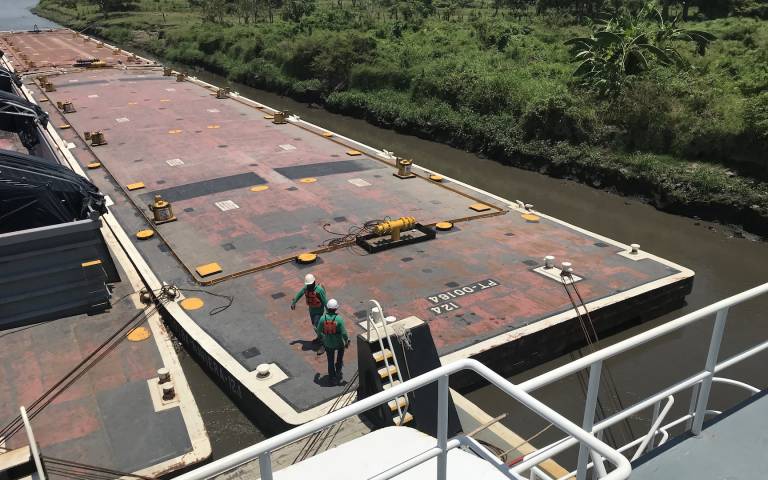Situated Architecture: Racial Currents: Remaking Social and Environmental Orders in Fluvial Colombia
29 November 2021, 6:00 pm–7:30 pm

This is the first of a series of Situated Architecture Talks which presents environmental water research by architectural and urban historians and theorists.
Event Information
Open to
- All
Availability
- Yes
Organiser
-
The Bartlett Communications Team
About
Together with The Bartlett International Lecture being delivered by Astrida Neimanis on Wednesday 17 November, this is the first of a series of Situated Architecture Talks which presents environmental water research by architectural and urban historians and theorists.
Abstract
Racial Currents: Remaking Social and Environmental Orders in Fluvial Colombia
Colombia’s Magdalena River is the primary waterway connecting the country’s Andean interior and Caribbean coast. For over four centuries, the river served as a conduit for the expansion of colonial and racial capitalism in the Americas. The flow of commerce all but dried up in the 1950s, but state-backed projects have recently begun working to resuscitate commercial navigation through dredging, channelling, and maintenance works.
This paper examines sociotechnical imaginaries and interventions in the domain of fluvial transport and their relationship to entrenched racial taxonomies and regional hierarchies governing Colombian society and space. Of primary concern are the practices and performances of both fixing and destabilising ontological divides (land/water, being/nonbeing, subject/object, human/nonhuman, person/thing) and their consequences for who and what either flourishes or perishes.
Extending insights from scholars of race and Black studies to infrastructural environments sheds light on how racial regimes of difference-making determine which entities, living and nonliving, are relegated to the past and which are deemed to have a future.
Speaker biography
Austin Zeiderman is Associate Professor in the Department of Geography and Environment at the London School of Economics. He is an interdisciplinary scholar who specializes in the cultural and political dimensions of urbanization, development, and the environment in Latin America and the Caribbean, with a specific focus on Colombia. His current research moves beyond the city to examine large-scale social and environmental transformations in Colombia. He has written on racialised displacement linked to port expansion and climate change adaptation, and on efforts by Afro-Colombian activists and settlers to counter displacement pressures. This research also led to a methodological intervention into conceptual debates in urban theory. More recently, Austin has written about the process of building a ‘concrete peace’ in Colombia through large-scale infrastructure projects. This has led him to undertake a long-term research project focusing on plans to create a multimodal logistics corridor along Colombia’s Magdalena River between the Andean interior and the Caribbean sea. This project seeks to intervene in debates on capitalism, security, race, and nature while experimenting with new ways of thinking and writing about environmental politics in our rapidly changing world.
Previously, his book, Endangered City: The Politics of Security and Risk in Bogotá (Duke University Press 2016), examined the everyday workings of the state to protect poor and vulnerable citizens in areas recently declared at 'high risk' of landslide, flood, and earthquake. Drawing on ethnographic fieldwork and archival research, Endangered City showed what happens when security and risk become dominant logics of engagement between urban citizens and the state. Austin’s research has also been published in: Antipode, Public Culture, Journal of the Royal Anthropological Institute, Environment and Planning, American Ethnologist, openDemocracy, and The Guardian.
More information
Image: Austin Zeiderman
 Close
Close

